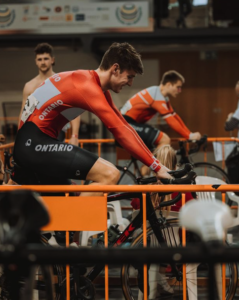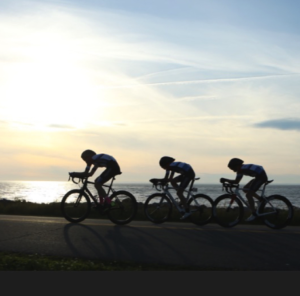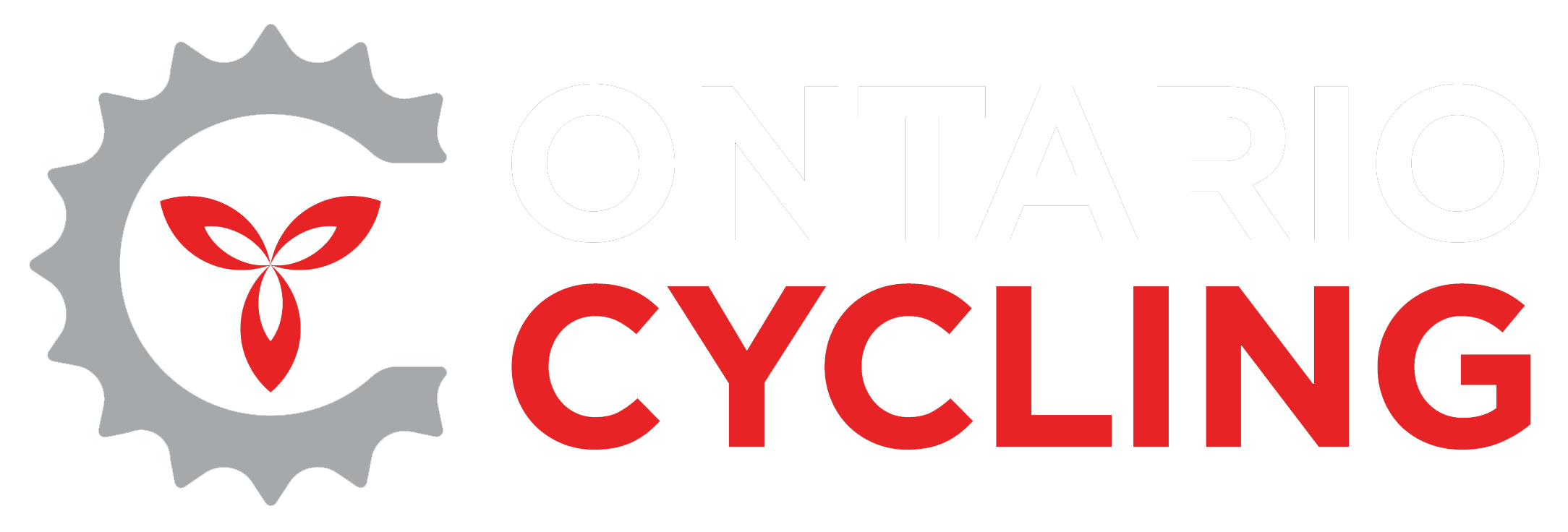June 1, 2022
By molly hurford
Track sprinter and Team Ontario High Performance Athlete Andrew Scott has been riding as long as many masters cyclists, despite not being 20 years old yet. But his experience has come in a lot of different ways: While he’s best known now for sprinting on the track, he takes what he’s learned from other disciplines and brings it to the velodrome.
What Discipline Are you in now, and where did you start?

It’s a balance between track and road these days, but I originally was a BMX racer, actually. I got into that when I was eight years old. My dad used to do it as a kid, and he told me stories of him racing. I was never really into traditional sports like soccer or baseball or hockey, but I thought that’d be a cool avenue to pursue. I was doing that for a while, but in the winter, there wasn’t really much to do in terms of training.
I found the Velodrome, right after the Pan Am Games were held in Milton and thought it seemed interesting. My dad signed me up for the ‘Try the Track’ program and youth certification and I pretty much instantly fell in love with it. It was what I wanted to do. I just loved the speed.
What was the BMX to track transition like?
It was a little bit weird, going from riding a tiny little bike to a massive track bike where you’re on your saddle constantly. And of course, there are no jumps on the track! But I was never really a technical rider per se. In fact, it was the BMX coach Brendan Arnold who actually recommended that I try out track cycling because I had the leg speed, but I just wasn’t really great at all the other stuff that goes into BMX. On the track, though, I could do really well.
What was it about the track that made you love it?
I loved the community right away. I love being on bikes: My bike is my happy place. It just made sense. I’ve always just fallen in love with like the speed of things. My parents would describe me as like a speed demon. I just like to always liked to go fast even at a young age. So that’s part of the appeal.

Track and BMX are both races against the clock: Is that tough?
You do some road racing, how does that stack up next to track racing?
It sounds sadistic in a sense, but I enjoy kind of seeing how much I can like make myself hurt and how much I can physically push myself. I think any athlete in any capacity has a little bit of a weird mindset with that question of how hard you can push yourself. How fast can I do this? How far can I run? I don’t know how to explain the psychology behind why I enjoy that. But even when I’m pushing as hard as I can, I’m never stressed when I’m on my bike.
I wouldn’t say that I really enjoy road racing. I not really great at it because I used to be the guy who’d launch it off the front when I didn’t have any road strategies, and that’s not how you do well on the road. I’ve gotten a lot more comfortable sitting in the pack and waiting for things to happen now. And I do enjoy crit racing!
And does road racing help track racing?
A lot of track endurance athletes will also ride the road just because that’s their nature. But a lot of sprinters seem to think that riding the road is detrimental to their endurance. Actually, it’s helpful: if you build up that aerobic base, it can really help with your anaerobic efforts, because you just have that higher capacity to do more hard efforts and get tired. Having that good foundation of endurance is healthy. And on the track, these race days are getting a lot longer and more compact with a lot more races, so being able to have stamina helps. And really, long rides are great, both physical perspective and a mental health perspective.
It'd be easy to race year-round with road and track: How do you know when it's time to take a break?
How does gym work fit into your training?
There definitely is a desire to keep on racing all year. But I feel like it’s important to just take a step back. You really can’t progress if you don’t take some breaks along. Your body needs time to recover. You can’t be on constantly.
I’m in the gym twice a week now and just focusing on conditioning. Strength is important to be able to transfer power on the bike. I like heavyweight box squats… and really don’t like split squats. I’m not really good at balance work, I’m normally toppling over!
What are your goals in cycling?
My main goal is to just constantly improve on my times on the track, and my race craft. I’d like to more international racing. I think it’s awesome subjecting myself to more competition and adversity. And I really think it’s super cool meeting people from different countries when you’re at these events!
Track is very math-oriented, and in most events, you're more focused on competing with yourself than other riders. How does that work with goal setting?
I’d say it’s easier to focus on competing with yourself because you’re always looking at ways to make yourself faster especially when events are time-based. For example, if you’re doing like an individual pursuit. You have a benchmark time that you want to improve on—you’re not focusing on beating everyone else.
I’m beating myself and what I’ve done in the past. That’s the way I like to do things. If you can constantly self improve, I think that’s a healthy mindset to have, rather than feeling like you need to beat someone else’s time.
About the Author
Molly Hurford is a journalist in love with all things cycling, running, nutrition and movement-related. When not outside, she’s writing about being outside and healthy habits of athletes and interviewing world-class athletes and scientists for The Consummate Athlete podcast and website, and most recently launched the book ‘Becoming A Consummate Athlete.‘ She’s the author of multiple books including the Shred Girls, a young adult fiction series and online community focused on getting girls excited about bikes.
Molly is a little obsessed with getting people psyched on adventure and being outside, and she regularly hosts talks and runs clinics for cyclists and teaches yoga online and IRL… And in her spare time, the former Ironman triathlete now spends time tackling long runs and rides on trails or can be found out hiking with her mini-dachshund DW and husband, cycling coach and kinesiologist Peter Glassford.
